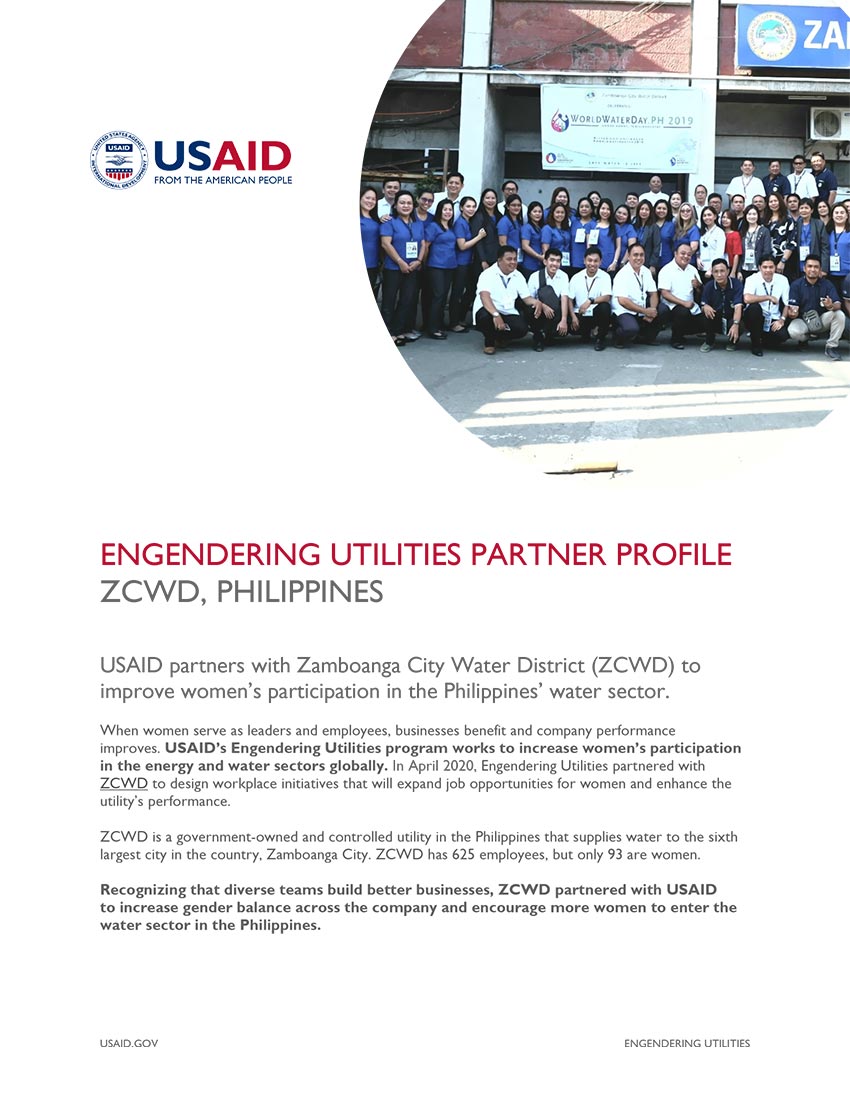- Energy Home
- How We Work
- Programs & Initiatives
- Smart Utilities
- Asia EDGE
- Auction Design Support to Colombia
- Energy Auctions for Kazakhstan’s Green Economy
- Energy Efficiency for Development
- Engendering Utilities
- About
- Business Case
- Approach
- Partners
- OSHEE, Albania
- SONABEL, Burkina Faso
- EDESUR, Dominican Republic
- DELSUR, El Salvador
- EEU, Ethiopia
- Energo-Pro, Georgia
- GRIDCo, Ghana
- BRPL, India
- TPDDL, India
- EDCO, Jordan
- IDECO, Jordan
- Miyahuna, Jordan
- KenGen, Kenya
- Kenya Power
- KOSTT, Kosovo
- LEC, Lesotho
- LEC, Liberia
- EGENCO, Malawi
- EDM, Mozambique
- EKEDC, Nigeria
- IBEDC, Nigeria
- ISWSC, Nigeria
- EVN, North Macedonia
- LASURECO, Philippines
- ZCWD, Philippines
- REG, Rwanda
- OFOR, Senegal
- Senelec, Senegal
- EVN, Vietnam
- Resources
- Stories
- Institutional Framework for Auctions in Mexico
- Powering Agriculture
- The USAID-NREL Partnership
- Scaling Up Renewable Energy
- EmPOWERing Women and Girls
- Competitive Energy Procurement
- Toolkits
- Monitoring & Evaluation
- Resources
- Stories
Speeches Shim
Engendering Utilities Partner Profile
ZCWD is a government-owned and controlled utility that supplies water to the sixth largest city in the country, Zamboanga City. ZCWD has 625 employees, of which 14 percent are women.
The Philippines is one of Asia’s fastest urbanizing countries, and over half of the country’s 92 million people now reside in urban areas. The country’s water resources are strained by a number of factors, including rapid population growth, increasing demand for food production, pollution, excessive and inefficient use of water, and climate change. Engendering Utilities’ work with ZCWD will ensure women are able to access opportunities in the Philippines’ water sector as the industry and labor force grows.
A complex web of contributing factors prevents women in the Philippines from joining the formal workforce, particularly the male-dominated water sector. Women’s labor force participation in the Philippines is only 45 percent compared to 72 percent of men, and women are disadvantaged when it comes to employment opportunities and income parity. The government of the Philippines has created numerous laws and policies that promote gender equality. The Philippine Plan for Gender Responsive Development is a 30-year plan that outlines the policies, strategies, and programs that the government must adopt to enable women’s active participation in society and the workforce. These policies emphasize coordination and creating a supportive environment for gender equality in the water and sanitation sector. Engendering Utilities is supporting ZCWD to consider and respond to factors that reduce women’s workforce participation by building inclusive policies and practices that benefit men, women, and businesses in the water sector.
USAID is supporting ZCWD in its goal of becoming the employer of choice for women in the Philippines by providing change management coaching and leadership training, conducting a baseline assessment to identify gaps and opportunities for gender equality, and developing a strategic plan with ZCWD to facilitate the company’s gender equality goals, including achievement of a national mandate for 30 percent of company employees to be women. Engendering Utilities will support and accelerate gender equality initiatives already underway at ZCWD, including:
- Adoption of a Sexual Harassment Policy, which clearly defines the behaviors that are considered sexual harassment, deters these behaviors, and outlines the process, procedures, and actions that are taken when a complaint is received.
- Increased Recruitment and Promotion of Women by reframing position descriptions, educating technical teams to incorporate gender considerations into proposals, and expanding recruitment outlets to diversify the pool of applicants. The utility has also identified the need to include more women on the board and in executive leadership positions. The utility will generate sex disaggregated data and place a strong emphasis on engaging influential male leaders as champions of gender equality through the development of a male engagement strategy.
- Mainstreaming Gender into Infrastructure Projects by building staff capacity and providing training on the topics of gender mainstreaming, analysis, planning and budgeting.


Comment
Make a general inquiry or suggest an improvement.